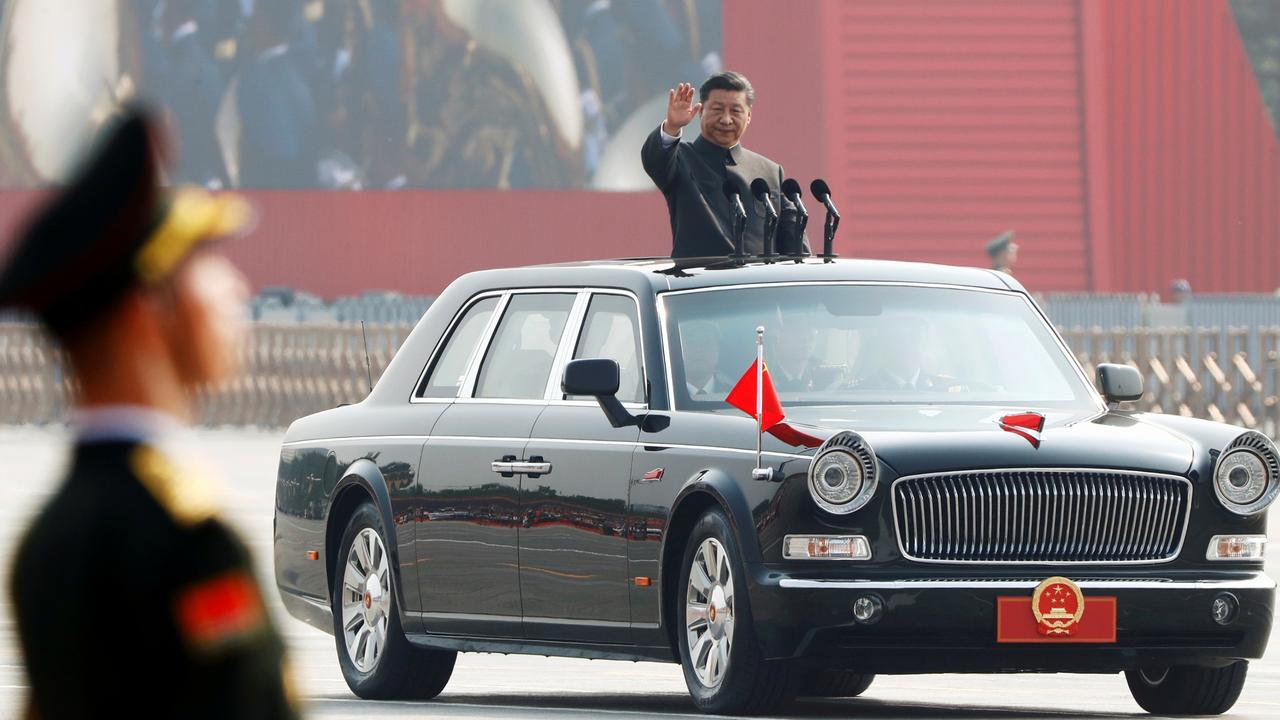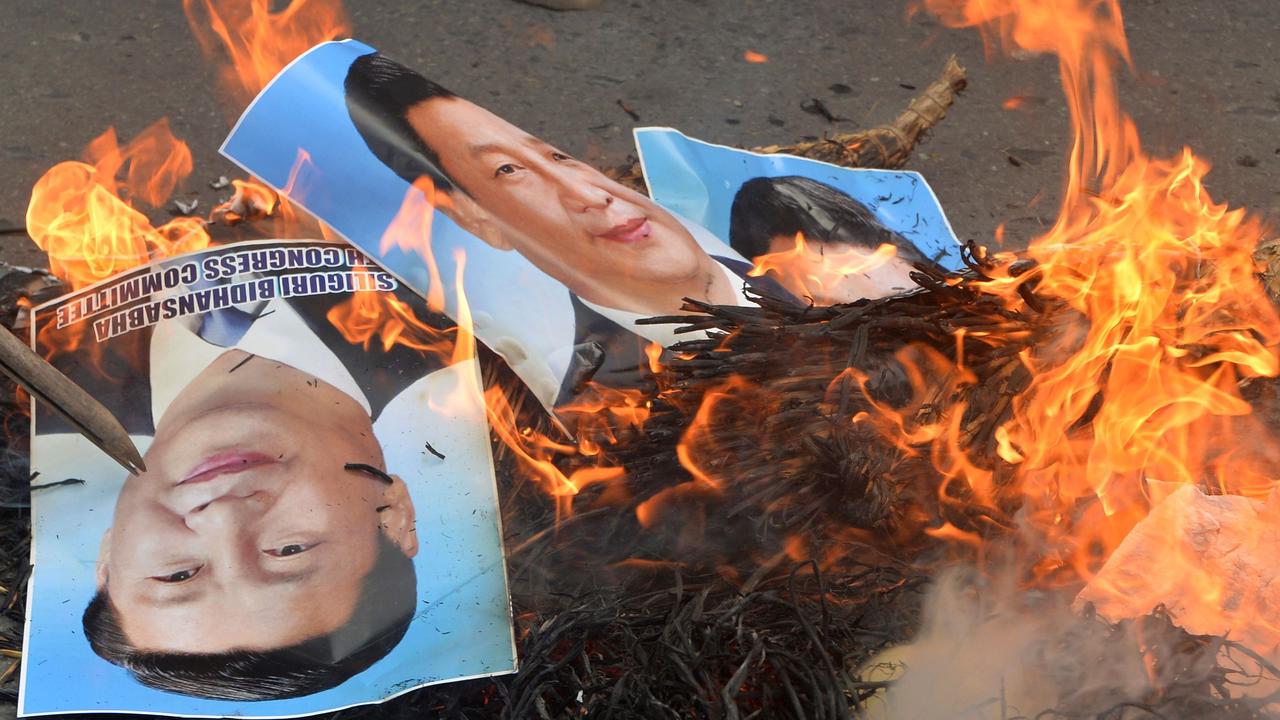Warning that China-Australia relations are doomed and the year ahead will be a mess
China’s bullying tactics and bitter attempts to crush Australian trade have seen Canberra-Beijing relations collapse – and things may never recover.
Australia’s relationship with China is ‘doomed’, warns a Beijing academic who predicts an air of “suspicion and scrutiny” is set to dominate the year ahead.
The origins of COVID-19. Discredited territorial claims. Economic coercion. Cyber espionage. Influence operations. Respect for international law.
“With both sides unlikely to back down in any of the above areas and shrinking policy space among megaphone diplomacy and unwise messaging, it is getting increasingly unrealistic to imagine a reset,” a Beijing-based international affairs analyst has declared.
Assistant Professor Dr Diane Hu of the Australian Studies Centre of the Beijing Foreign Studies University declares: “China-Australia relations (are) doomed”.
Professor James Laurenceson of the University of Technology Sydney’s Australia-China Relations Institute (ACRI) agrees.
“There’s little reason to be optimistic that a sudden, positive turnaround will be seen in 2021,” he argues.
And Canberra will continue to be treated as an ‘example’ of what happens when Beijing’s will is crossed.
“Australia has been on the front lines of this treatment — dialogue on the leader and ministerial level has been refused, exports have been targeted and propaganda campaigns have been deployed,” Professor Laurenceson said.
“In the case of Australia … China is unlikely to put the stick down any time soon.”
RELATIONSHIP IS ‘DOOMED’
In an assessment published by the University of Western Australia, Dr Hu says the pending US Joe Biden Presidency bodes ill for China-Australia relations.
The President-elect has declared his intention to present a “united front of US allies and partners” in opposing Beijing’s rough handling of international affairs.
Canberra, Dr Hu says, is likely to be one of this new US-led coalition’s “first and most enthusiastic members”.
“Even if the Australian government withstands that intuition, it would be under even greater pressure than it already is to align itself with other ‘like-minded countries’ in policies and approaches towards China,” she writes.
This division of nations into power blocs is emphasising an atmosphere of competition over co-operation, Professor Laurenceson says.
And both superpowers are taking notes.
“Each is increasingly sensitive to evidence that other countries in the Asia-Pacific region are supporting their opponent.”
Canberra, Beijing believes, is Washington’s flag-bearer.
And Dr Hu says relations have devolved to the point where “anything related to China is an easy target of suspicion and scrutiny”.
Professor Laurenceson says this has served to paint Canberra into a corner: “Australia’s unfortunate distinction is that because its relations with China have already sunk to such depths, it has less ability to negotiate a path between the two great powers.”

CONSCIOUS UNCOUPLING
Dr Hu says there is nothing new about the worsening Australia-China diplomatic spat.
“In fact, the tide arguably changed as early as in 2017, to be constantly pushed further by an Australia that has grown more and more assertive and outspoken about what it believes,” she writes.
In the same time frame, Beijing has become more belligerent about its unilateral claims over the South and East China seas and the Himalayas. It has also become increasingly forceful in its approach to international relations.
But these have presented Beijing with unexpected roadblocks on its path towards becoming a leading world player. And its policy of strengthening economic and social influences has not been enough to overwhelm such clashes of principle.
“China has long held the belief that closer economic ties and people-to-people exchange would strengthen understanding and goodwill,” Dr Hu writes.
“Every businessman to venture into the Chinese market would first be reminded how important ‘guanxi’ is.”
But Australian businesses have shown little interest in Chinese Communist Party (CCP) principles, she argues. Instead, they have adopted a Western policy of “business as usual”.
And business, Professor Laurenceson writes, has the most to lose.
“The International Monetary Fund’s latest growth forecasts suggest China’s economy will jump from two-thirds to three-quarters the size of the US by the end of 2021,” he writes. “And when cost differences are accounted for, and the two economies are measured in terms of their respective purchasing power, China’s GDP is actually already 10 per cent larger than the US.”
And that gives Beijing economic power it’s proving more than willing to wield.
“Painting a stark contrast between Southeast Asia and Australia serves the purpose of reminding the region of the benefits of staying in Beijing’s good books — as well as the costs of crossing it,” he says.

A MATTER OF TRUST
Beijing’s growing record of ‘debt-trap diplomacy’, ‘wolf-warrior diplomacy’, ‘coercion diplomacy’ and economic and intellectual espionage is being met with increasing resistance.
Australia has had its fair share of this internal interference, with allegations ranging from universities being the subject of financial pressure over any perceived academic or student criticism of China, to “United Front” influence operations within community and political organisations.
For its part, Beijing accuses Canberra of interfering in “internal” matters ranging from the origins of COVID-19, the assimilation of Hong Kong and Taiwan, and its vast territorial claims.
Dr Hu says the result is a lack of trust.
“Australia does not trust China and has amplified this by taking administrative decisions and proactive legislation to that end while loudly publicising them. The issue with that position is the simultaneous hope for business as usual.”
Dr Hu cites a Beijing Foreign Studies University survey which found one-third of Chinese respondents believed that “Australia is more of a political, ideological or military threat than economic partner.”
A recent survey of Australian sentiment by the Lowy Institute tells a similar story.
Only 23 per cent of Australian respondents trusted China to “act responsibly”. Some 55 per cent saw Beijing as more of an economic partner, while 41 per cent believed it to be ‘more of a security threat’. And nine out of 10 wanted Canberra to shift its economic ties elsewhere.”
NATIONAL INSECURITY
Chairman Xi Jinping has been winning big.
But the increasingly shrill voice of its wolf-warrior diplomats may reflect an inherent sense of insecurity.
“President Xi Jinping’s worldview is another factor,” Professor Laurenceson says.
“In September, Xi exhorted Communist Party cadres to ‘maintain a fighting spirit and strengthen their ability to struggle’. The word ‘struggle’ appeared more than another 50 times in the same speech.”
Why such an emphasis on struggle for a nation in such a robust economic position?
Why adopt diplomatic bluster over calm conciliation?
Professor Laurenceson says it may reflect Chairman Xi’s belief that China is in an “existential struggle” against Western civilisation and values.
“All of this has meant that rather than projecting a self-assured poise, China’s international behaviour has frequently veered in the direction of bullying fuelled by insecurity,” he writes.
The result is the very struggle Xi fears.
“Beijing’s intransigence has predictably led to the strengthening of coalitions like the Quadrilateral Security Dialogue (comprised of the US, Australia, Japan and India), as well as deeper conversations among Japan, India and Australia about how to build greater resilience into supply chains that are currently heavily exposed to China.”




